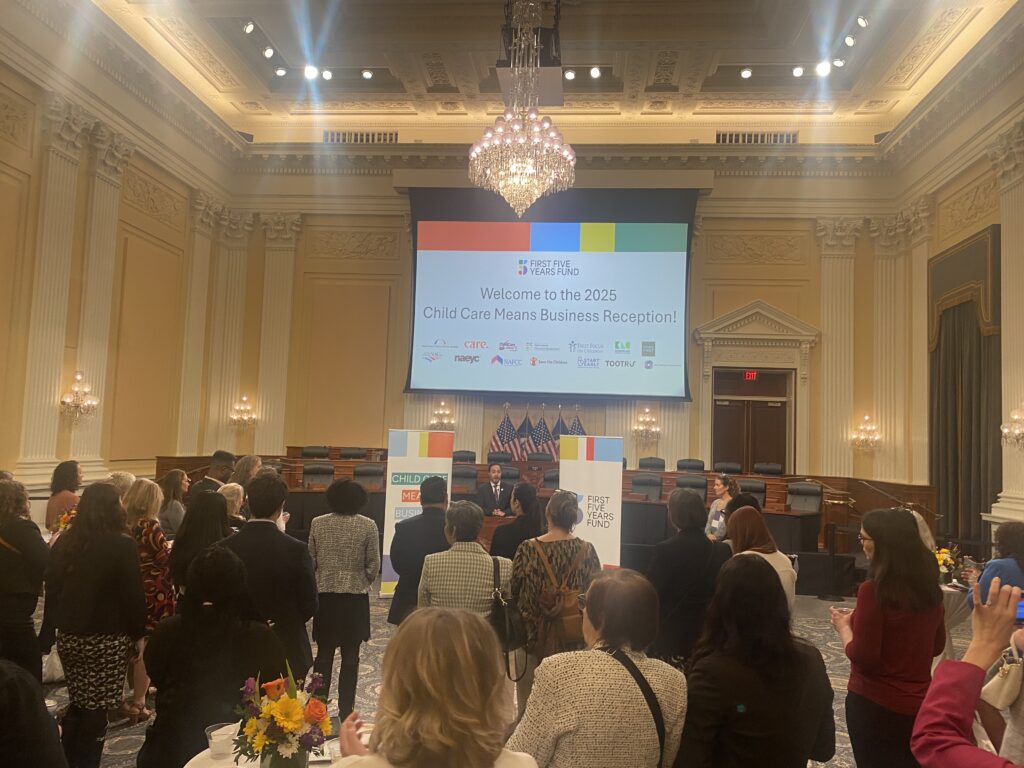Veterans’ Access to Child Care Act Passed House with Significant Bipartisan Support

Last week, the House passed HR 840, the Veterans’ Access to Child Care Act (Act), which would require the Department of Veterans Affairs (VA) to provide child care assistance to veterans receiving covered health care services at a VA facility. The bill, which passed with significant bipartisan support, highlights the troubling fact that lack of child care can dissuade parents from receiving essential health care services. The bill would make permanent a VA child care pilot program first introduced in 2011 and expand access to child care assistance nationwide, allowing veterans to receive medical treatment with confidence that their children are receiving high quality care.
Summary
The Act would require the Secretary of Veterans Affairs (Secretary) to provide child care assistance to veterans receiving “covered health care services,” including mental health care services, drug and substance abuse counseling, and physical therapy, at a VA facility. Assistance would be available for veterans who are the primary caretaker of a child or children while the veteran is attending an appointment, as well as while the veteran is traveling to and from appointments. The Act would require the Secretary to establish criteria to ensure reasonable access to child care assistance for veterans who experience unusual or excessive burdens to child care access, including excessive driving distances, geography, and other such environmental services.
For the purposes of the Act, “child care assistance” could include care provided on-site at a VA facility or through collaboration with a facility or program offered by another federal department or agency; a stipend for the full cost of care offered by a licensed child care center or extended day program; or direct payment to a private child care agency. Child care providers receiving compensation under the Act would be prohibited from employing an individual who has been convicted of a sex crime, an offense involving a child victim, a violent crime, a drug felony, or other offense the Secretary determines appropriate.
Finally, the Act would require the Secretary to perform outreach to inform veterans that child care assistance is available and to study and report to Congress on: the provision of child care assistance as outlined in the Act; the effect of such assistance on access to covered health services; the feasibility of providing assistance for veterans receiving covered health care services at a non-VA facility; other challenges regarding child care that prevent veterans from receiving covered health care services and the Secretary’s plan to address such challenges; and an assessment of the extent to which lack of education by the VA or awareness by veterans of the availability of child care assistance contributes to a lack of use of such assistance.

Background
The Caregivers and Veterans Omnibus Health Services Act of 2010 established a pilot program requiring the Secretary to provide child care assistance to veterans receiving mental health services at three VA facilities. The pilot was set to expire in 2013 but has been extended several times. HR 840, the Veterans’ Access to Child Care Act, which was sponsored by Congresswoman Julia Brownley, D-California, would make permanent the pilot and expand services nationwide.
After a hearing on the bill in the House Rules Committee, H. Res. 105 was reported to the House for consideration of the bill. The House Committee of the Whole adopted numerous amendments and passed the bill easily on a vote of 400-9 with bipartisan support.
Upon passage of the bill, Congresswoman Brownley issued a press release, saying: “The lack of child care shouldn’t prevent veterans from receiving VA healthcare services. Ensuring veterans have access to child care is especially important for our growing population of women veterans, who are more likely to be taking care of young children.”
Looking ahead, Senator Patty Murray has introduced similar legislation in the Senate and has indicated she will fight to make sure the bill moves through the Senate and is signed into law.
FFYF applauds this bipartisan effort to ensure veterans’ access to child care is not a barrier to receiving health care services. It is a critical first step toward providing access to affordable, reliable, and high-quality care opportunities nationwide.
Subscribe to FFYF First Look
Every morning, FFYF reports on the latest child care & early learning news from across the country. Subscribe and take 5 minutes to know what's happening in early childhood education.



